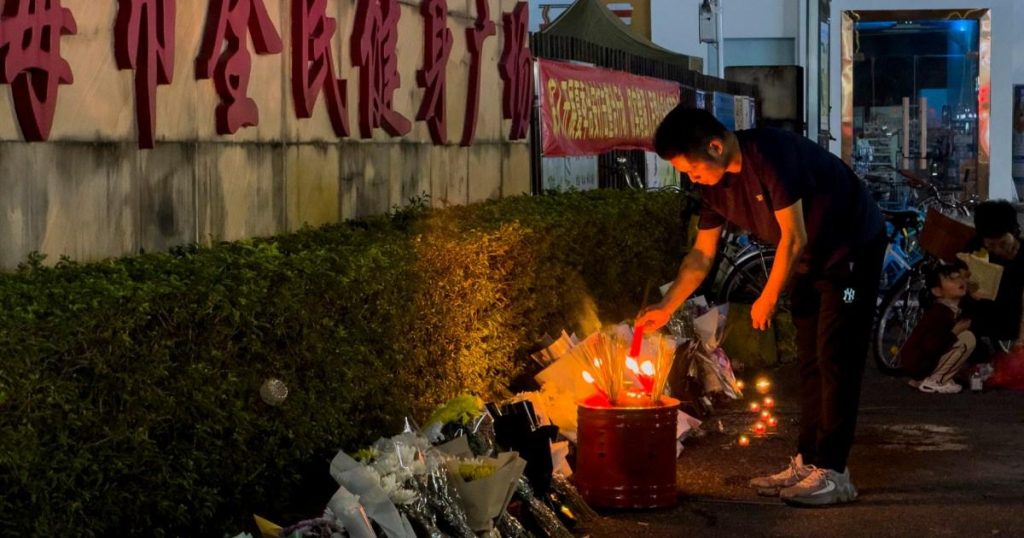Paragraph 1: The Heinous Act and Swift Justice
On a seemingly ordinary day in the southern Chinese city of Zhuhai, a horrific tragedy unfolded. Fan Weiqiu, driven by a deep-seated resentment over his divorce settlement, deliberately plowed his car into a crowd of unsuspecting individuals exercising at a sports center. The brutal act claimed the lives of 35 innocent people and left another 43 injured. Swift justice followed as Fan was sentenced to death for endangering public safety by dangerous means. The court, acknowledging the egregious nature of his crime, described his motives as "extremely despicable," the crime itself as "extremely vile," and the means as "particularly cruel." The severity of the consequences and the profound social harm inflicted were also heavily emphasized.
Paragraph 2: A Second Similar Incident and China’s Censorship
This tragic incident followed closely on the heels of another similar attack. Just weeks earlier, a driver in Hunan province received a suspended death sentence with a two-year reprieve after injuring 30 people, including elementary school students and parents, in a similar vehicular assault. Such sentences are typically commuted to life imprisonment. In the aftermath of these attacks, Chinese authorities implemented strict censorship measures, suppressing videos, eyewitness accounts, and detailed information on social media platforms. This controlled release of information, often delayed by many hours, reflects a pattern of tight control over sensitive events within China.
Paragraph 3: Delayed Information and the Call for Preventative Measures
The official death toll in the Zhuhai attack was not released until a full 24 hours after the incident, underscoring the government’s tight grip on information dissemination. Following the tragedies, Chinese leader Xi Jinping instructed local governments to implement preventive measures against future "extreme cases." This directive prompted local officials to vow investigations into personal disputes that could potentially escalate into violence, ranging from marital conflicts to inheritance disagreements. This response highlights a shift towards addressing the underlying causes of such extreme acts.
Paragraph 4: The Driver’s Motivation and the Nature of the Crime
Fan Weiqiu’s motivation for the horrific act stemmed from his dissatisfaction with the outcome of his divorce settlement. This personal grievance, however justified in his mind, transformed into a murderous rage, leading him to perpetrate this mass casualty event. The method he chose – using a vehicle as a weapon – underscores the devastating potential for ordinary objects to be turned into instruments of destruction. The court’s description of the crime as "vile" and the means as "particularly cruel" reflects the horrific nature of the attack and the immense suffering inflicted on the victims and their families.
Paragraph 5: Government Response and the Broader Implications
The Chinese government’s response to these attacks, characterized by both swift punishment and a call for preventative measures, reflects a multifaceted approach to addressing the issue. While the death penalty handed down to Fan Weiqiu signifies a firm stance against such extreme acts, the directive to investigate potential triggers points to a recognition of the complex societal factors at play. The censorship surrounding these events, however, raises questions about transparency and public access to information. Furthermore, the focus on personal disputes as potential triggers warrants a broader examination of the pressures and underlying issues within Chinese society that may contribute to such extreme acts of violence.
Paragraph 6: Examining the Roots of Violence and the Need for Societal Support
The Zhuhai tragedy and the similar incident in Hunan province necessitate a deeper reflection on the root causes of such violent outbursts. While individual motivations may vary, addressing the broader societal context is crucial. This includes examining the pressures individuals face, the availability of mental health resources, and the effectiveness of conflict resolution mechanisms. Furthermore, fostering a culture of empathy and providing accessible support systems for those struggling with personal crises are vital steps in preventing future tragedies. These incidents serve as a stark reminder of the devastating consequences of unresolved personal conflicts and the urgent need for proactive measures to address the underlying societal factors that contribute to such acts of violence.


